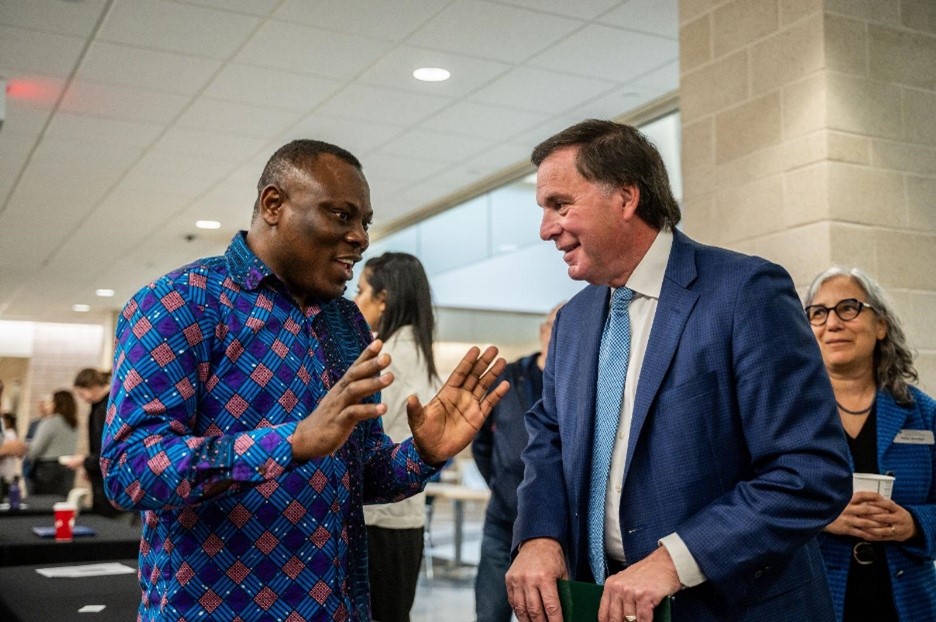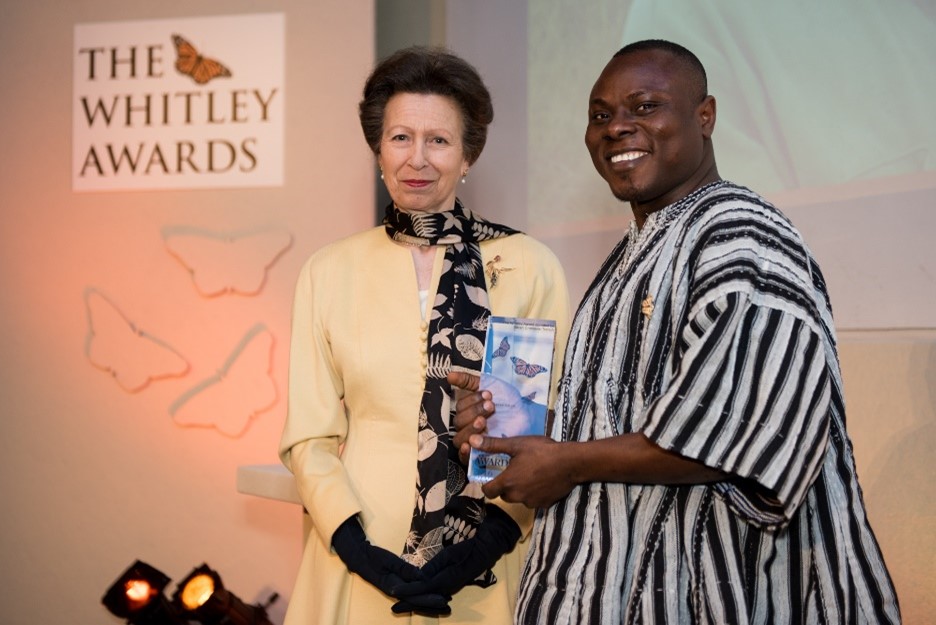
Pioneering paths to a sustainable future: honouring Black excellence in sustainability
SENS student and Vanier Scholar Gilbert Adum's journey has taught him the importance of collaboration and the willingness to listen and learn from others, including Indigenous Peoples.
By Aisha Adelah
Gilbert Adum grew up in a hunting community in northern Ghana and by default, his early connection with nature revolved around hunting. This interest evolved into a passion for wildlife conservation, leading him to pursue studies in related fields. He earned his bachelor’s and master’s degrees from Ghana’s KNUST, as well as another master’s from the University of Cambridge, England. He is currently a Ph.D. candidate at the USask School of Environment and Sustainability, supervised by Distinguished Professor Maureen Reed and supported by a Vanier Scholarship.
Gilbert’s contributions to sustainability began during his undergraduate thesis research on amphibians, where he noticed a significant decline in frog populations in Ghana. This experience opened his eyes to a wider crisis in global sustainability. Realizing that his actions as a frog hunter were part of the problem, He took a decisive step by founding Save Ghana Frogs to reverse the trend. Since then, he has been saving frogs that would have otherwise gone extinct, improving the lives and livelihoods of Indigenous and local people who matter most in addressing global sustainability challenges, and promoting a culture that respects and values frogs and wildlife. He saw this work as a step towards more harmonious human-nature relations.
Throughout his academic journey and conservation career, Gilbert describes some moments when he often felt like the protagonist of his village's popular folklore: an orphaned child beset by countless challenges yet prevailing against each one to achieve greatness. His journey has taught him the importance of collaboration and the willingness to listen and learn from others, including Indigenous Peoples, who are often the unsung heroes in the fight to save our ailing and vanishing ecosystems.
Receiving prestigious awards such as the Green Oscar, Alexander von Humboldt Fellowship, and Vanier Scholarship, have been humbling experiences for Gilbert, which he owes much to the Indigenous and local communities he works with and learns from. Their wisdom and resilience inspire him to continue making small but significant strides towards a sustainable and healthier planet.
Speaking to his younger self, Gilbert encourages the need to embrace both interdisciplinary and transdisciplinary approaches more readily. In a world where global sustainability challenges are complex, a collaborative approach across and beyond disciplinary boundaries is necessary to devise effective solutions.
In the next five years, Gibert envisions completing his doctoral studies and leading research that combines ancestral wisdom with contemporary sustainability practices. Specifically, inspired by the African Three-Stone Hearth, symbolizing balance and interconnectedness, he aims to explore more ethical ways to braid diverse knowledge systems to confront today's sustainability challenges.
From his beginnings in an obscure village in Ghana to becoming a leader in global sustainability, Gilbert’s story shows the Black Community that with passion and resilience, we can transcend our origins.
As we commemorate Black History Month, therefore, he urges us all to embody the ethos Martin Luther King, Jr. inspired: “If a man is called to be a street sweeper, he should sweep streets so well that all the hosts of heaven and earth will pause to say, Here lived a great street sweeper who did his job well.”

